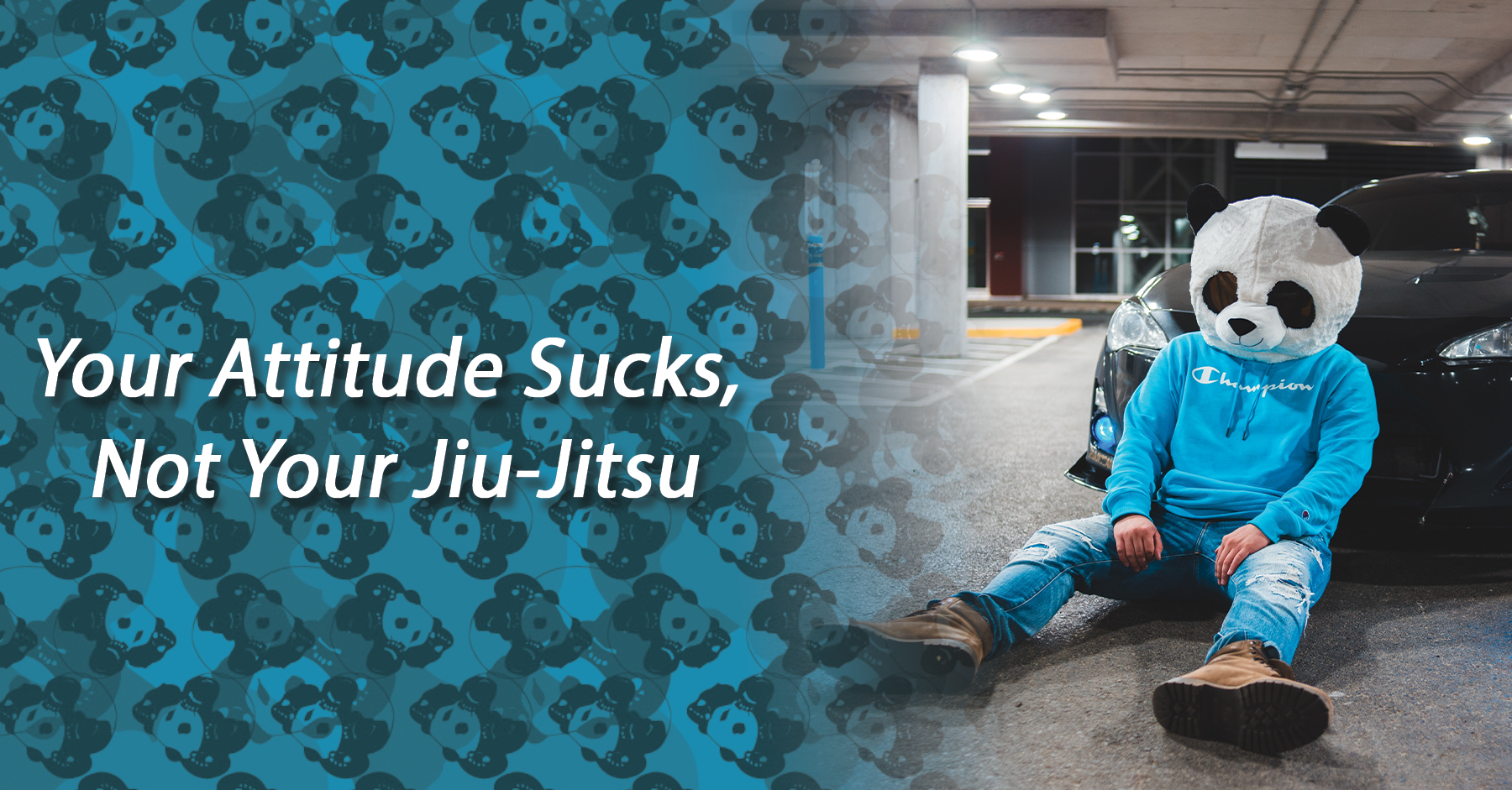
Your Attitude Sucks, Not Your Jiu-Jitsu
Periods of frustration and growth plateaus are part of the natural ebb and flow of Jiu-Jitsu. The same applies to stretches of defeats in competition, or consistently tapping to the training partner at your school who has your number. All are unavoidable. Also, all signify correct practice in Jiu-Jitsu.
Growth occurs on the mats when we work just beyond the limits of our capabilities. We strive in this frontier zone and eventually, we become familiar with the territory. The border that separates the known from the unknown moves outward a bit further. Play only your A Game, for example, and the border remains fixed.
Everything described in the preceding paragraph is logical and rational, but it does little to alleviate the pain of not progressing as we wish. The pain often stems from our inability to separate the meaning from the event. In this case, the event is a failure (I’m failing to progress as I’d like to) and the meaning, well, is entirely subjective. Generally, those experiencing negative emotions in raining ruts might jump to meanings such as:
- I’m failing to progress as I’d like, therefore I’m a failure.
- … therefore I’m not good at Jiu-Jitsu.
- … therefore I need to strength train/do yoga/go keto/use CBD/buy more instructionals/hector my instructor about promoting me.
Most of us come to the mats with a preconceived notion of what our journey through the art should look like. This might include time-specific goals, such as earning a certain belt within a certain number of months or years. The problem with this way of thinking is that Jiu-Jitsu doesn’t care about your plans, desires, or insecurities. In the face of our hand-wringing and consternation, Jiu-Jitsu remains indifferent. This is what I mean when I say your attitude sucks. My attitude also sucks -- and often, so does my thinking. But thankfully there are ways of improving both.
BJJ philosophy
Over the past five years, I’ve had a falling in and falling out with Stoic philosophy. I fell in because it was effective, and fell out because I came to see it as a technique without much depth.
John Vervaeke, a Candian cognitive science professor, proved me wrong in his YouTube series, Awakening from the Meaning Crisis, of which a few episodes focus on Stoicism. Vervake has shown me that what I had mistaken for insufficiency in Stoicism is actually elegance. Stoicism teaches you to decouple meaning from events. This transcends the technical because it incorporates the Socratic method of questioning. For example:
- “I’m failing to progress in Jiu Jitsu, therefore I’m a failure.” Really? You got out of bed. You have money to pay for tuition. You know more Jiu-Jitsu than when you started. Are you really a failure?
- “I’m not good at Jiu-Jitsu.” Really? Is anyone “good” at Jiu-Jitsu? Do people have innate Jiu-Jitsu abilities? Unless you have some wrestling experience, there isn’t much like it. And clearly, you’ve managed to learn something -- even if it’s just how to tie your belt. Are you really not good at Jiu-Jitsu, or is it something specific that you’re struggling with, some technique or concept?
- “I’m failing to progress, therefore I should strength train.” Really? Jiu-Jitsu historically has been advantageous for smaller people. Do you really need to be stronger, or might there be a more technical explanation for your struggles?
Stoicism is one among thousands of mental models and philosophies. It’s not the definitive one, but it’s one that I think has the potential to limit our capacity for self-deception as grapplers. By learning to question our own assumptions about ourselves and our games, by tapping into our inner Socrates, we not only cultivate an inner state of equanimity, but we pave the way for more efficient learning.
This is not about thinking positively and silencing our inner critic. This is about making our inner critic more precise in its observations. Furthermore, this approach gives us the ability to create mental space around the events we perceive as negative. We can analytically understand the nature of our setbacks and respond accordingly.
Now, imagine if we learned to do that off that mats as well...
Joe Hannan is a writer, consultant, and purple belt at Princeton Brazilian Jiu-Jitsu. You can see more of what he’s up to here or follow him here.
Other articles:
Quick links
Contact us
About us
Quality BJJ gear at fair prices, available all year. Founded in 2012 to provide an alternative to high-cost, limited edition gis. Dive into the BJJ lifestyle with us—join the Panda Nation!"
